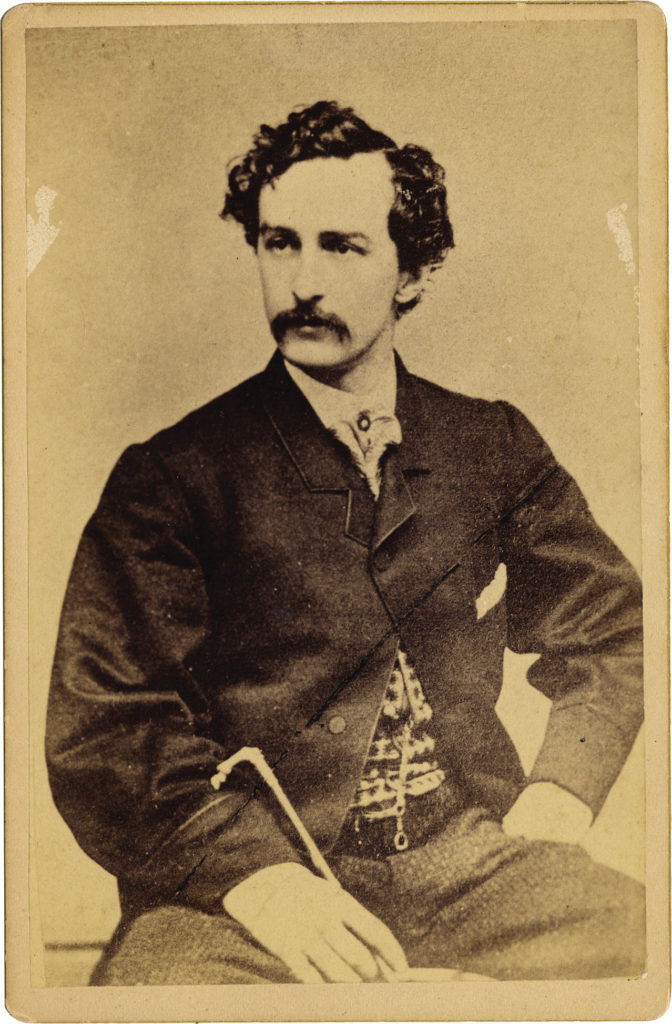
By Jim O’Neal
John Wilkes Booth assassinated Abraham Lincoln on Good Friday, April 14, 1865, at Ford’s Theatre while the Lincolns were enjoying the play “Our American Cousin.” A Confederate sympathizer, Booth was the younger brother of famed Shakespearian actor Edwin Booth and had become a popular actor himself. A meticulous planner, he had attended a rehearsal the day before and devised his escape plan.
There is a fascinating backstory to this tragedy that started on April 3 when news of the surrender of Richmond was received at the War Department. The telegraph operator had jumped to his feet, opened a window and shouted out “Richmond has fallen!” This extraordinary good news spread quickly and almost by magic the streets were filled with noisy, jubilant people. Among the talking, laughing and shouting, the local newspaper reported that “many wept like children.”
People were convinced that this long nightmare was nearly over. Generally, they were right, except for a series of dramatic events that could have altered the future in any number of possible ways.
It started the following day when Secretary of State William Henry Seward was critically injured in a carriage accident. He was with his son Fred, daughter Fanny and her friend Mary Titus. When the driver stopped to close a carriage door, the horses bolted and Seward jumped out to stop the runaway horses, caught his heel and landed violently on the pavement. After regaining consciousness, he was carried to his home severely injured.
Then on April 11, two days after Robert E. Lee’s surrender to Ulysses S. Grant, several thousand people gathered at the White House to hear Lincoln give a speech about returning the Southern states, extending suffrage to blacks and the benefits of school to all children. JWB was in the crowd and furiously declared, “Now, by God, I’ll put him through. That is the last speech he will ever give.”
Earlier, Booth had planned to kidnap Lincoln, but now he was determined to kill him, along with Vice President Andrew Johnson and Seward in a choreographed decapitation of the Union government. The triple assassination was set for 10:15 p.m. on Good Friday. His accomplice, George Atzerodt, was assigned to kill the VP and Lewis Powell was to kill Seward in his bed while he was recovering.
Only JWB was successful. Atzerodt lost his nerve, got drunk and left the Kirkwood hotel where the VP was in suite 68. Powell went on a rampage in Seward’s house, stabbing him three times in the throat and neck. A metal brace on his neck miraculously saved his life.
The world would now know the power of a single gunshot, yet for America this was a first. Never had a president been assassinated or even died during a war. As sorrow gradually spread throughout the nation, there remained one more haunting question: Would it all come undone and devolve into an endless conflict?
We know the answer now, but it was a perilous time for our troubled nation.
 Intelligent Collector blogger JIM O’NEAL is an avid collector and history buff. He is President and CEO of Frito-Lay International [retired] and earlier served as Chairman and CEO of PepsiCo Restaurants International [KFC Pizza Hut and Taco Bell].
Intelligent Collector blogger JIM O’NEAL is an avid collector and history buff. He is President and CEO of Frito-Lay International [retired] and earlier served as Chairman and CEO of PepsiCo Restaurants International [KFC Pizza Hut and Taco Bell].
